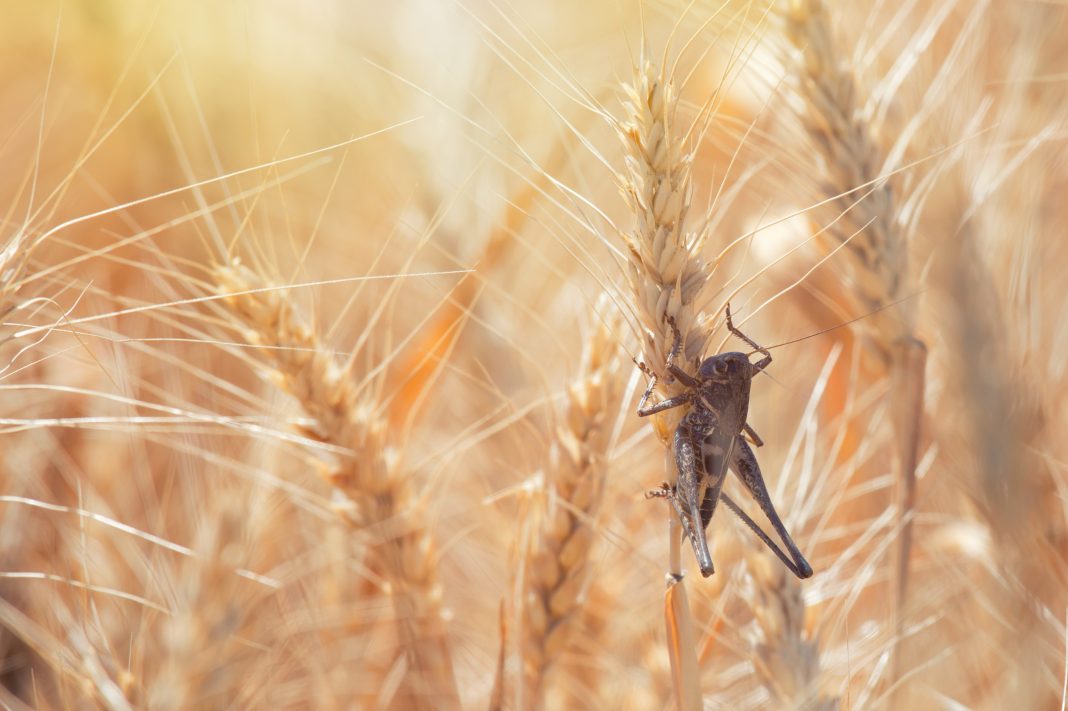Plant ecologists suggest that people should be eating more insects and using the insect waste to grow crops, as it gives added nutrients to the soil we use
80% of nations around the world eat insects – a practice called entomophagy – as mass rearing insects for food is less environmentally damaging than other forms of protein production, and contributes to sustainable crop production worldwide.
Discussing the benefits of using the waste from insect-as-food-and-feed production to promote sustainable crops, researchers look at an approach to enhance plant growth, health, pollination, and resilience.
Essentially, eating bugs and using insect waste to give back to the Earth.
Insect faeces are rich in nitrogen – a nutrient which is becoming scarce in most soils – which is often added to crops in synthetic fertiliser to promote both plant growth and health, and rear sustainable crops.
As insect exoskeletons are rich in chitin, which is a polymer that is difficult for most organisms to digest, it is an excellent source of protein for humans. When digested in humans, this can have a positive impact on plants if added to soil.
Eating insects as a novel step towards a circular food system
Published journal Trends in Plant Science, a researcher at Wageningen University in the Netherlands, look at adding insect waste by-products to crops as a step towards a circular food system in which there is very little waste.
Promoting a peculiar outlook to the circular production of food, insects – referred to as “mini-livestock” by the author – are already efficient to farm, especially when compared to more traditional livestock like beef.
It takes roughly 25 kilograms of grass to produce one kilogram of beef, which accounts for the same amount of grass which could produce ten times as much edible insect protein. This is due to the higher conversion rate of insects and because up to 90% of an insect’s body mass is edible, as opposed to only 40% of a cow.
The insects, when fed waste streams from crop farming or food production, can provide humans with food when we use the leftovers from insect production to bolster crop growth, which could close this circle.
Marcel Dicke said: “The leftovers from insect waste production come in two main forms: exuviae, the exoskeletons left behind after molting, and frass, named for the German word for eating. Frass is basically insect poop and unconsumed food.”
“There is, however, a set of bacteria that can metabolize chitin, and those microbes help plants to be more resilient to diseases and pests. When exuviae are added to soil, the populations of those beneficial bacteria increase.”
Additionally, when a plant is attacked by an insect, its leaves can produce volatiles that attract the predators of the pest, which eliminates the pest problem in these sustainable crops also.
A similar process may already be happening through the plants’ roots, where the microbes that are digesting the chitin in the insect waste might also be acting as security for the plants by breaking down pathogenic fungi and making the plant resilient to pests.
Crop resilience to pests
Dicke added: “I have eaten crickets, mealworms, and locusts. Many people in in our part of the world need to get used to eating insects, but I can tell you that I’ve eaten many other insect species around the globe, and I’ve always had a wonderful meal on them.
“I call it the plant’s cry for help. They are recruiting bodyguards.
“Studies have already shown that microbes associated with the roots help plants by protecting against diseases. Now we’re investigating whether plant roots recruit microbes that help them in defending against pests.”
The researchers plan to investigate the potential for insect waste to work as a pest control, as well as getting more people on board in their research to promote sustainable food production.











